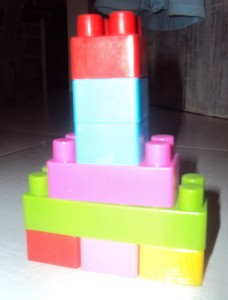 Learning disability is a neurological disorder. It is the result of differences in brain structure. This could be present at birth and often inherited. Children with learning disabilities are smart but they have difficulty in terms of reading, writing, spelling, reasoning, recalling and organizing information. Researchers do not know the exact cause of learning disabilities but it can be inherited. Other factors that affect learning includes alcohol or drug use during pregnancy and infant’s environment such as poor nutrition and exposure to lead or paint.
Learning disability is a neurological disorder. It is the result of differences in brain structure. This could be present at birth and often inherited. Children with learning disabilities are smart but they have difficulty in terms of reading, writing, spelling, reasoning, recalling and organizing information. Researchers do not know the exact cause of learning disabilities but it can be inherited. Other factors that affect learning includes alcohol or drug use during pregnancy and infant’s environment such as poor nutrition and exposure to lead or paint.
If a child has struggle in school, he or she might have learning disabilities. Every child has trouble with homework from time to time but if he has difficulty in a certain area consistently, it might indicate a learning disorder. Knowing and understanding learning disability, you may help your child to overcome classroom challenges and succeed in life. There is no cure for learning disability and it is a lifelong issue but with the right support and intervention, children can succeed in school and become successful in the future. Autism and Attention Deficit Hyperactivity Disorder (ADHD) are not consider learning disability because children with autism may have trouble communication, learning basic skills, reading body language, and making friends while ADHD have problems with sitting still, staying focused, following instruction and staying organized.
The following are some types of learning disabilities:
- Dyslexia. A child has problems with reading, writing, spelling and speaking such as difficulty in reading.
- Dyscalculia. A child has problems doing math problems, understanding time and using money such as difficulty with math.
- Dysgraphia. A child has problems with handwriting, spelling and organizing ideas such as difficulty with writing
- Dyspraxia (Sensory Integration Disorder). A child has problems with hand-eye coordination, balance, manual dexterity such as difficulty with fine motor skills
- Dysphasia/Aphasia. A child has problems understanding spoken language, poor reading comprehension such as difficulty with language
- Auditory Processing Disorder. A child has problems with reading comprehension, language such as difficulty with hearing differences between sounds.
- A child has problems with reading, math, maps, charts, symbols, pictures such as difficulty interpreting visual information
